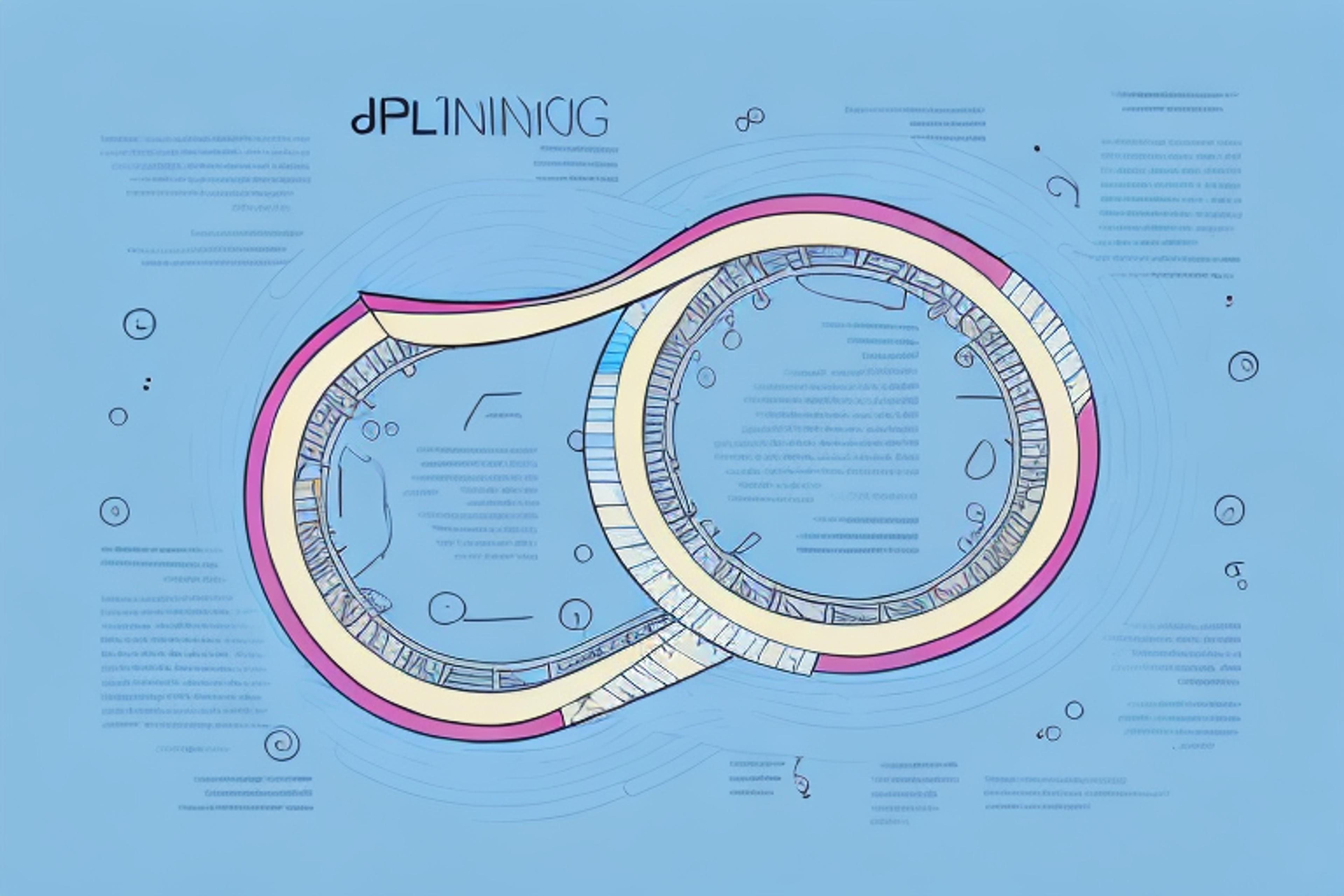Healthcare Case Interview: A Step-by-Step Approach for Success
This article provides a comprehensive guide for acing your healthcare case interview.
Posted March 6, 2025

Table of Contents
Healthcare case interviews are an integral part of the recruitment process for consulting firms and healthcare institutions. These interviews are designed to test your ability to analyze complex healthcare issues, identify relevant data and information, and develop actionable solutions. In this article, we will take a step-by-step approach to help you prepare for and succeed in healthcare case interviews.
Preparing for a Healthcare Case Interview: What You Need to Know
Before we dive into the details of a healthcare case interview, it is important to understand the basic format and structure of the interview. A typical healthcare case interview comprises of several components:
- Introduction: The interviewer will introduce the case and provide you with background information.
- Analysis: You will analyze the case and identify key issues and challenges.
- Recommendations: You will provide potential solutions for the identified issues.
- Conclusion: The interviewer will wrap up the case and provide feedback.
It is critical to prepare in advance for these interviews. This includes honing your analytical skills, gathering knowledge about healthcare trends and concepts, and practicing with mock interviews.
Additionally, it is important to research the company and the specific role you are interviewing for. This will help you understand the company's values, goals, and challenges, and allow you to tailor your recommendations to their specific needs. It is also helpful to familiarize yourself with common healthcare industry terms and acronyms, as these may come up during the interview. Finally, make sure to dress professionally and arrive early to the interview to show your enthusiasm and preparedness.
Understanding the Healthcare Industry: Key Concepts and Trends
Before you can tackle a healthcare case interview, it is essential to understand the healthcare industry's key concepts and trends. This includes understanding healthcare financing, delivery, organizations, structures, and policies. You should also gather knowledge about healthcare reform, regulatory trends, and technological advancements. This information can be acquired through reading industry reports, attending conferences, and analyzing case studies.
One important trend in the healthcare industry is the shift towards value-based care. This means that healthcare providers are being incentivized to focus on improving patient outcomes and reducing costs, rather than simply providing more services. This trend is being driven by changes in government policies and payment models, as well as increasing pressure from patients and employers to improve the quality and affordability of healthcare. As a consultant, it is important to understand the implications of this trend for healthcare organizations and to be able to advise clients on how to adapt to this new paradigm.
Analyzing Case Studies: Tips and Tricks for Success
Case studies are at the heart of a healthcare case interview. A case study presents a real-world scenario or problem that needs to be addressed. To succeed in analyzing a case study, you should follow these tips and tricks:
- Read the case study carefully and take notes.
- Identify the problem or issue presented in the case study.
- Develop a hypothesis and test it using relevant data and information.
- Prioritize the issues and develop a comprehensive action plan.
- Consider the financial implications of your proposed solutions.
- Be creative and think outside the box.
Another important tip for analyzing case studies is to consider the ethical implications of your proposed solutions. Healthcare professionals are held to high ethical standards, and it is important to ensure that your proposed solutions align with these standards. Additionally, it is important to consider the potential impact of your proposed solutions on all stakeholders involved, including patients, healthcare providers, and the healthcare organization as a whole.
Finally, it is important to communicate your analysis and proposed solutions effectively. This includes presenting your findings in a clear and concise manner, using data and evidence to support your conclusions, and addressing any potential objections or concerns that may arise. Effective communication is key to ensuring that your proposed solutions are implemented successfully and have a positive impact on the healthcare organization and its stakeholders.
Building a Framework for Your Case Analysis
A framework can help you organize your thoughts and develop a systematic approach to analyzing a case study. An effective framework should include the following elements:
- Context: Understanding the context of the case study and defining the problem or challenge at hand.
- Analysis: Identifying the key issues, developing hypotheses, and testing them using data and information.
- Solutions: Developing feasible and actionable solutions to the identified issues.
- Implementation: Developing a comprehensive action plan and considering the financial implications of your proposed solutions.
It is important to note that a framework is not a one-size-fits-all solution. Depending on the nature of the case study, you may need to modify or adapt your framework to suit the specific circumstances. Additionally, it is crucial to remain flexible and open to new information as you work through your analysis, as this may require you to adjust your framework accordingly.
Identifying and Prioritizing Issues in Healthcare Cases
Identifying and prioritizing issues is a crucial step in analyzing a healthcare case study. A useful technique is the "5 whys" approach, which involves asking "why" five times to understand the root cause of the identified issue. Prioritizing the issues can be done based on their impact, urgency, and feasibility of solutions.
Another important factor to consider when identifying and prioritizing issues in healthcare cases is the potential legal and ethical implications. It is essential to ensure that the solutions proposed do not violate any laws or ethical standards. Additionally, the cultural and social context of the case should also be taken into account to ensure that the proposed solutions are appropriate and acceptable.
Furthermore, involving all stakeholders, including patients, healthcare providers, and administrators, in the process of identifying and prioritizing issues can lead to more effective solutions. This collaborative approach can help to ensure that all perspectives are considered and that the proposed solutions are feasible and acceptable to all parties involved.
Developing a Hypothesis and Testing It
Developing a hypothesis is a critical step in healthcare case analysis. A hypothesis is an educated guess about the cause or effect of the identified issue. To test your hypothesis, you should gather relevant data and information, using both quantitative and qualitative methods. This includes conducting market research, analyzing financial statements, and interviewing stakeholders.
It is important to note that developing a hypothesis is not a one-time event. As new information becomes available, you may need to revise your hypothesis and continue testing it. This iterative process allows for a more thorough understanding of the issue at hand and can lead to more effective solutions. Additionally, it is important to consider potential biases and limitations in your data collection and analysis, as these can impact the validity of your hypothesis and subsequent conclusions.
Gathering Relevant Data and Information
Gathering relevant data and information is a critical part of healthcare case analysis. This requires conducting research and collecting data from various sources, including industry reports, government datasets, financial statements, internal documents, and interviews with stakeholders. The data collected should be relevant, reliable, and valid.
One important aspect of gathering relevant data and information is to ensure that the data is up-to-date. Healthcare is a constantly evolving field, and data that was relevant a few years ago may no longer be applicable. Therefore, it is important to regularly update the data and information used in healthcare case analysis.
Another important consideration is to ensure that the data is collected ethically and in compliance with relevant laws and regulations. This includes obtaining informed consent from participants in interviews or surveys, protecting the privacy and confidentiality of individuals and organizations, and ensuring that the data is not used for purposes other than those for which it was collected.
Analyzing Financial Statements and Reports
Financial analysis is a crucial component of healthcare case analysis since it helps you understand the financial viability and performance of healthcare organizations. This involves analyzing financial statements, such as income statements, balance sheets, and cash flow statements, to identify trends, ratios, and other performance indicators.
One important aspect of financial analysis is understanding the difference between profitability and liquidity. Profitability refers to a company's ability to generate profits, while liquidity refers to its ability to meet short-term financial obligations. By analyzing both aspects, you can gain a more comprehensive understanding of a healthcare organization's financial health.
Another key factor to consider when analyzing financial statements is the impact of external factors, such as changes in government regulations or shifts in the healthcare industry. These factors can have a significant impact on a healthcare organization's financial performance, and it's important to take them into account when conducting financial analysis.
Conducting Market Research and Competitive Analysis
Market research and competitive analysis are essential components of healthcare case analysis since they help you understand the market dynamics, trends, and competition in the healthcare industry. This involves gathering data on market size, growth rates, customer preferences, and competitive positioning.
Creating a Comprehensive Action Plan
A comprehensive action plan is an essential part of effective healthcare case analysis. It involves developing a roadmap for implementing your proposed solutions, including timelines, budgets, and resource allocation. A well-designed action plan should be feasible, actionable, and aligned with the organization's goals and objectives.
Presenting Your Findings with Confidence
Presenting your findings with confidence is a crucial part of healthcare case analysis. This requires strong communication and presentation skills, including the ability to articulate your ideas clearly, staying focused and engaging with the audience. You should also be prepared to handle questions and objections from the interviewer confidently.
Overcoming Common Challenges in Healthcare Case Interviews
Healthcare case interviews can be challenging since they deal with complex healthcare issues and require a high level of analytical skills. Common challenges include information overload, time pressure, and incomplete information. To overcome these challenges, you should practice with mock interviews, learn to prioritize issues and be comfortable working with incomplete information.
Preparing for Behavioral Questions in Healthcare Case Interviews
Behavioral questions are aimed at assessing your soft skills, including your communication, leadership, teamwork, and problem-solving abilities. Common behavioral questions include "Tell me about a time when you had to work with a difficult team member" and "What is your leadership style?". To prepare for these questions, practice with mock interviews, reflect on your past experiences, and be prepared with specific examples.
Tips for Navigating Virtual or Remote Healthcare Case Interviews
Virtual or remote healthcare case interviews have become more common due to the pandemic. To navigate these interviews successfully, you should ensure that you have the right technology and equipment, such as a reliable internet connection, a quiet environment, and a webcam. You should also test the technology before the interview and dress professionally.
Conclusion: Key Takeaways and Final Thoughts on Succeeding in Healthcare Case Interviews
Healthcare case interviews are a critical component of the recruitment process for consulting firms and healthcare institutions. To succeed in these interviews, you should prepare in advance by gathering knowledge about healthcare trends and concepts, developing your analytical skills, and practicing with mock interviews. You should also follow a systematic approach to analyze case studies, prioritize issues, develop feasible solutions, and present your findings with confidence.



















